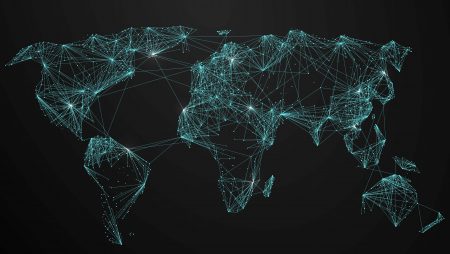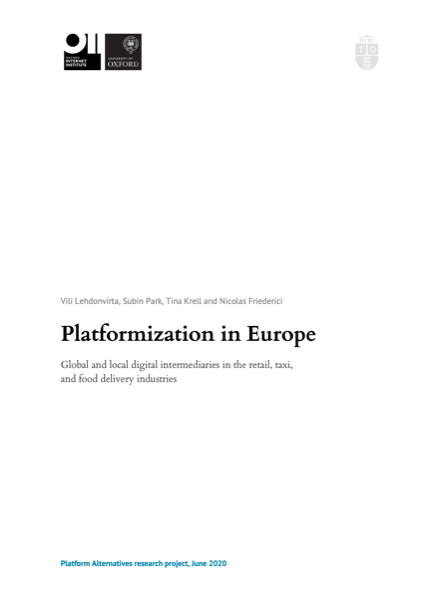
Platform Alternatives: Strategies and Corporate Governance for Europe’s Platform Economy
This project addresses the question of how platformization can be managed in order to achieve fairer results for European stakeholders.
Nicolas was a postdoctoral researcher at the Oxford Internet Institute, working on the Geonet project. He studied how digital entrepreneurship works in environments that are far more challenging than Silicon Valley or London. His comparative grounded research covers African cities including Nairobi, Lagos, Accra, Kigali, and Harare. Nicolas is interested in the interplay of environmental factors with entrepreneurial motivations and capacities. Ultimately, this work addresses the question how and why digital entrepreneurship flourishes in some places but not in others.
Nicolas’ dissertation research at the OII focused on technology innovation hubs in Africa. The thesis proposed a theory of how hubs work, and how they differ from traditional and known forms of innovation intermediation and business incubation. During his doctoral studies, Nicolas paid a research visit to SCANCOR at Stanford, was a Clarendon Scholar, and received a fieldwork grant from the Skoll Centre for Social Entrepreneurship.
Until 2014, Nicolas was consultant for the Mobile Innovation for Development and ICT Policy & Regulation programs at infoDev (World Bank). He helped to coordinate and analyze infoDev’s global mobile incubation and entrepreneurship network of innovation hubs (“mLabs” and “mHubs”). He supported activities for innovation and talent sourcing, such as an online competition for mobile application developers. Nicolas is also contributed to projects on ICTs for post-conflict reconstruction, as well as the ICT Regulation and Broadband Strategies Toolkits.
Previously, Nicolas had published in broadband economics and policy, social online behavior, and knowledge management. He was a Fulbright scholar at Michigan State University, where he received a Master’s degree in Telecommunication, Information Studies and Media. He also holds a Diplom (equivalent to Master’s) in Media Studies and Media Management from the University of Cologne.
Nicolas continues to be active as a consultant, applying his insights to complex real-world problems in emerging markets. For instance, he recently helped the World Bank conduct an assessment of the digital entrepreneurship ecosystem in Dhaka, Bangladesh.
Nicolas is an active member of researcher communities such as the Entrepreneurial Spaces and Collectivities, Research Forum Entrepreneurship Africa, and the Connectivity, Inclusion, and Inequality Group at the OII.
Entrepreneurship, innovation, Africa, entrepreneurial ecosystems, digital economies, digital development.

This project addresses the question of how platformization can be managed in order to achieve fairer results for European stakeholders.

This research project is examining the geographies, drivers, and effects of Sub-Saharan Africa's emerging information economies at a time of changing connectivity and Internet access across the region.
My work at the OII has been financially supported by the Clarendon Fund, the Skoll Centre for Social Entrepreneurship, the European Research Council (ERC) and, to a smaller extent, the UK’s Economic and Social Research Council (ESRC). I also hold a position at the Humboldt Institute for Internet and Society in Berlin, which has received major funding from Google (details on the institute’s funding and governance are disclosed on its website). As part of my knowledge transfer and policy activities, I have worked as a consultant for the World Bank and UNCTAD.

With Dr Nicolas Friederici
A panel discussion at the Oxford Africa Conference 2017 with Ethel Delali Cofie, Olalekan Olude and moderated by Nicholas Friederici.
By Vili Lehdonvirta, Subin Park, Tina Krell, and Nicolas Friederici
Digital platform firms have transformed many major European industries, such as mobility services, retail, tourism, finance, food, music, and digital games. This report asks why platformization varies so much across industries and countries.

31 July 2018
14 February 2018
18 December 2017
17 October 2017